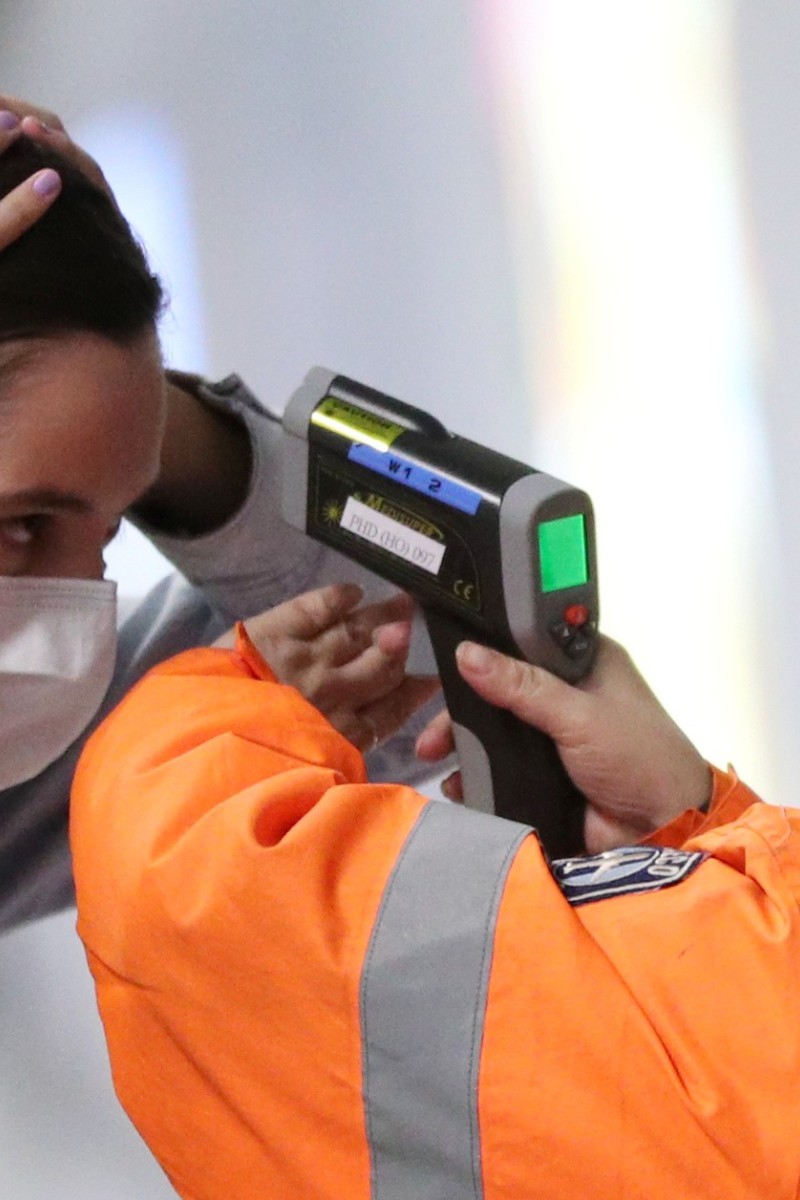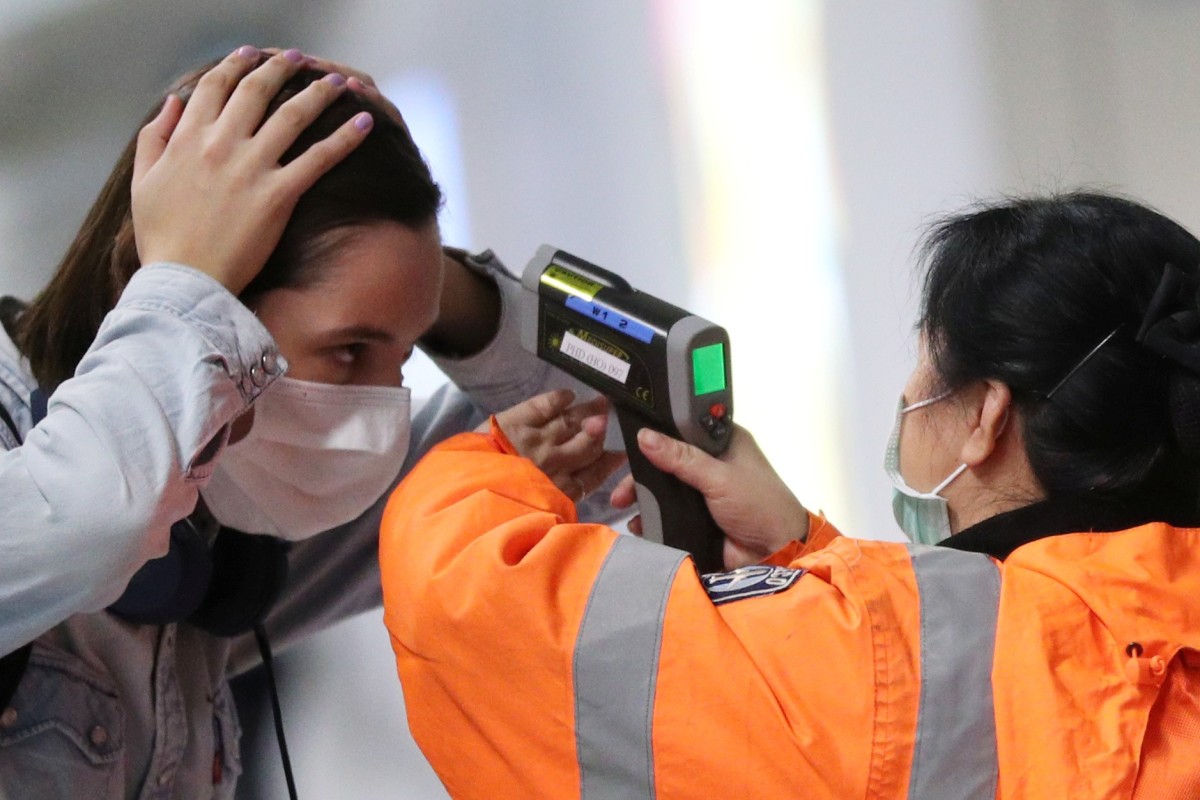
Department of Health director writes to city’s universities asking for unpaid volunteers; quarantine comes into effect at midnight on Friday
 A worker uses an infrared thermometer to check the temperature of a passenger arriving at Hong Kong International Airport.
A worker uses an infrared thermometer to check the temperature of a passenger arriving at Hong Kong International Airport.Civil servants and students are being recruited to help monitor people returning to the city from mainland China, who will be subject to mandatory quarantine from midnight on Friday.
As the government steps up measures to combat the coronavirus outbreak, university students enrolled in medical and nursing programmes were being approached to volunteer, even though details on how it will be carried out remain sketchy.
In an email to students, Dr Edmund Fong, principal medical officer at the Department of Health, said the need for volunteers was urgent.
“The new measure entails a surge of work such as medical surveillance and offering health advice to these people,” he wrote.
“As such, the Department of Health appeals to your support and is urgently looking for Year 5 and Year 6 medical students who are interested to be our volunteers and help us to conduct the surveillance work.”
In an email obtained by the SCMP, Chief Secretary Matthew Cheung Kin-chung made an appeal to all government department heads asking them to release staff where possible and to reach out to retirees to take up non-medical tasks from the health department, Home Affairs Bureau, and Social Welfare Department.
“To tackle the critical situation triggered by the novel coronavirus infection, I write to appeal for your full support in releasing your staff where practically possible to take up some operational but non-medical/non-professional tasks to provide urgent support,” he wrote.
“You are also invited to help reach out to retirees to find more volunteers for undertaking the tasks. Our concerted effort is vital. Accordingly, their salary would remain the same.”
A timeline of the coronavirus outbreak
Volunteers would be given appropriate briefings and training beforehand as well as the necessary equipment such as suitable protective gears for the specific tasks assigned, he added.
Among those tasks civil servants could be assigned would be to call people at home, to conduct random spot checks to ensure people were complying with the quarantine, and to deliver meals and other goods to people stuck at home.
According to Fong’s email, student volunteers would make calls to those in quarantine to ensure their compliance, conduct medical surveillance, and provide health advice when necessary.
School closures could be extended amid coronavirus fears
The surveillance work is due to begin on Sunday, and is scheduled to run from 9am to 10pm every day, in two eight hour shifts.
Students at Chinese University (CUHK) confirmed they had received the email from the department.
Meanwhile, the Open University’s School of Nursing and Health Studies also said on its Facebook page the department was looking for Year 4 and 5 nursing students to volunteer.
The city’s two medical schools, at the University of Hong Kong (HKU) and CUHK take in some 400 students for doctor training each year. There are also some 600 places each year for students studying nursing.
Professor Gabriel Leung, the dean of HKU’s faculty of medicine, which last week said medical staff who crossed the border would be exempt from a quarantine imposed on students, said the best way to stop the spread of the virus was to close all borders, preventing any more carriers from entering the city.
He said the coronavirus was difficult to handle as it could spread faster than severe acute respiratory syndrome (Sars) virus, and even people with light symptoms could have high virus counts.
People who were infected but showed no symptoms would further complicate prevention measures, he said.
In the face of pressure to completely close border checkpoints, and accusations of failing to act quickly or decisively in combating the disease, the government said on Wednesday all arrivals from the mainland would need to be quarantined for 14 days.
But no details have been released on how the plan is to be implemented. Sources told the SCMP that Chief Executive Carrie Lam Cheng Yuet-ngor was still locked in meetings over facilities and details on the plans on Thursday.
Questions have been raised if the administration has sufficient manpower and resources to handle mainland visitors and Hong Kong citizens returning from the mainland.